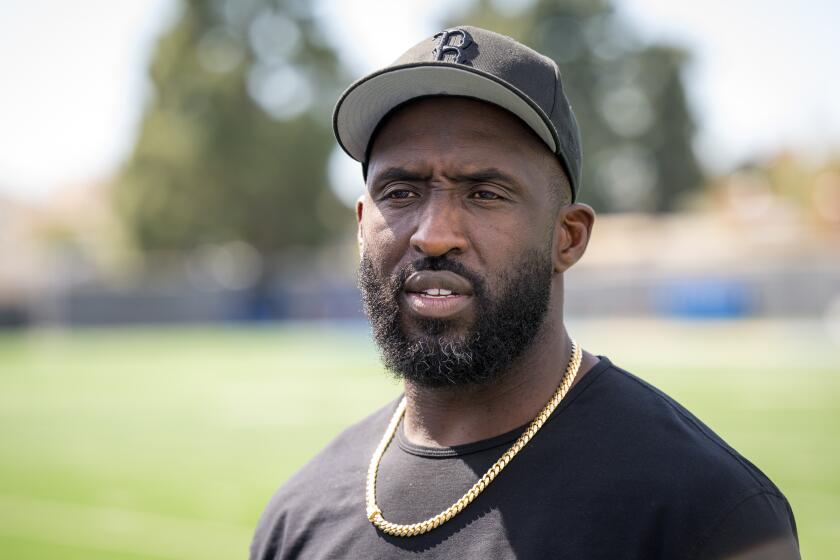Ben Bolch has been a Los Angeles Times staff writer since 1999. Twice awarded top-10 finishes in feature writing by the Associated Press Sports Editors, he began his second stint as the UCLA beat writer in 2016. His first stint, during the 2010-11 season, ended with yet another crushing loss to Florida in the NCAA tournament. Over his 25 years at The Times, Bolch has also covered the Lakers, Clippers, Dodgers, Angels, USC men’s basketball and high schools. His favorite athletes to cover were Dave Roberts, Jamal Crawford, Jose Lima, David Eckstein, Luc Richard Mbah a Moute, Thomas Welsh, Josh Kelley and Aday Mara. Bolch is also the author of the book “100 Things UCLA Fans Should Know & Do Before They Die.”
Latest From This Author
Bruins athletic director has been preparing a year for the ability to pay athletes directly and unveils the plan UCLA will follow.
Julio Frenk, UCLA’s new chancellor, spearheaded an overhaul of the University of Miami’s athletic department. Will he do the same in Westwood?
The Bruins enter the Columbia Super Regional after their sluggers had 13 RBIs in winning their own regional; they have combined for a record 161 this season.
UCLA’s chief revenue officer is planning to make a number of changes aimed at giving fans what they want as the athletic department tries to become profitable.
UCLA’s history of carving out licensing and other fundraising deals to support student operations has hindered the athletic department’s revenue.
Bob Myers inquired about a deficit that has ballooned to $219.5 million, including a $51.8-million shortfall in the 2024 fiscal year.
Former UCLA player Andy Hill developed the plus-minus statistic, which is now widely cited, to measure a player’s true impact in a game.
UCLA coach DeShaun Foster is happy to know he’ll have Nico Iamaleava as his quarterback this season as the Bruins take part in their final spring practice.
The Bruins are missing several key players while waiting for the transfer portal to clear, but coach DeShaun Foster and his staff are making some changes.
Carson Schwesinger is the first UCLA or USC player selected in the 2025 NFL draft after being selected by the Cleveland Browns at No. 33 overall.










